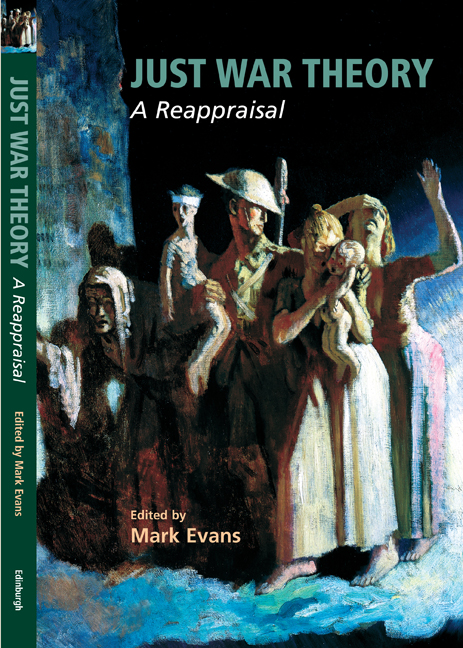Book contents
- Frontmatter
- Contents
- Notes on the Contributors
- Preface and Acknowledgements
- Introduction Moral Theory and the Idea of a Just War
- JUST CAUSE
- 1 The Justice of Preemption and Preventive War Doctrines
- 2 Punitive Intervention: Enforcing Justice or Generating Conflict?
- 3 In Humanity’s Name: Democracy and the Right to Wage War
- JUSTICE IN THE CONDUCT OF WAR
- 4 The Concept of Proportionality: Old Questions and New Ambiguities
- 5 Just War? Just Children?
- 6 Is There a Supreme Emergency Exemption?
- JUSTICE AND THE END OF WAR
- 7 Security Beyond the State: Cosmopolitanism, Peace and the Role of Just War Theory
- 8 Forgiveness and Reconciliation in Jus Post Bellum
- CONCLUSION
- In Defence of Just War Theory
- Bibliography
- Index
6 - Is There a Supreme Emergency Exemption?
Published online by Cambridge University Press: 03 October 2020
- Frontmatter
- Contents
- Notes on the Contributors
- Preface and Acknowledgements
- Introduction Moral Theory and the Idea of a Just War
- JUST CAUSE
- 1 The Justice of Preemption and Preventive War Doctrines
- 2 Punitive Intervention: Enforcing Justice or Generating Conflict?
- 3 In Humanity’s Name: Democracy and the Right to Wage War
- JUSTICE IN THE CONDUCT OF WAR
- 4 The Concept of Proportionality: Old Questions and New Ambiguities
- 5 Just War? Just Children?
- 6 Is There a Supreme Emergency Exemption?
- JUSTICE AND THE END OF WAR
- 7 Security Beyond the State: Cosmopolitanism, Peace and the Role of Just War Theory
- 8 Forgiveness and Reconciliation in Jus Post Bellum
- CONCLUSION
- In Defence of Just War Theory
- Bibliography
- Index
Summary
‘We have a right, indeed are bound in duty, to abrogate for a space some of the conventions of the very laws we seek to consolidate and reaffirm.’
Winston ChurchillThe supreme emergency exemption is a doctrine which pushes to the very limits the relationship between jus ad bellum (the justice of resorting to war) and jus in bello (the justice of conduct in war). It has high profile support, including such luminaries as Winston Churchill, John Rawls and Michael Walzer. But it is Walzer who is fundamentally responsible for the structure of this exemption: Churchill merely inspires it, and Rawls merely apes it.
As Walzer defines it, the supreme emergency exemption allows a country victimised by aggression to set aside the rules of jus in bello and fight however it wants, provided: (1) there is public proof the aggressor is just about to defeat the victim militarily; and (2) there is similar proof that, once it does so, the aggressor will not simply crush the political sovereignty of the victim community but, moreover, institute a brutal policy of widespread massacre and enslavement against the individual members of that community. His favourite, and only, example of such an aggressor is Nazi Germany. (More on that example shortly.) Let's push our definitions, and sense of the stakes, toward greater clarity.
For convenience, we can speak of three general rules of jus in bello which just war theory endorses: (1) noncombatant immunity from direct and intentional attack; (2) the use of proportionate means only against legitimate military targets; (3) no use of means mala in se, ‘evil in themselves’, such as using poisonous weapons or forcing captured soldiers to fight against their own side. What Walzer is saying is that, under supreme emergency conditions, the country with jus ad bellum on its side (the victim of aggression) may set aside all three jus in bello rules and fight however it wants to – without restraint – to stave off the threat. In particular, the victim country may wilfully violate noncombatant immunity, and do such things as deliberately attack enemy civilians with lethal force. Traditionally, such transgression has counted as the clearest violation of jus in bello rules, and been seen as one of the very worst war crimes.
- Type
- Chapter
- Information
- Just War TheoryA Reappraisal, pp. 134 - 154Publisher: Edinburgh University PressPrint publication year: 2020



